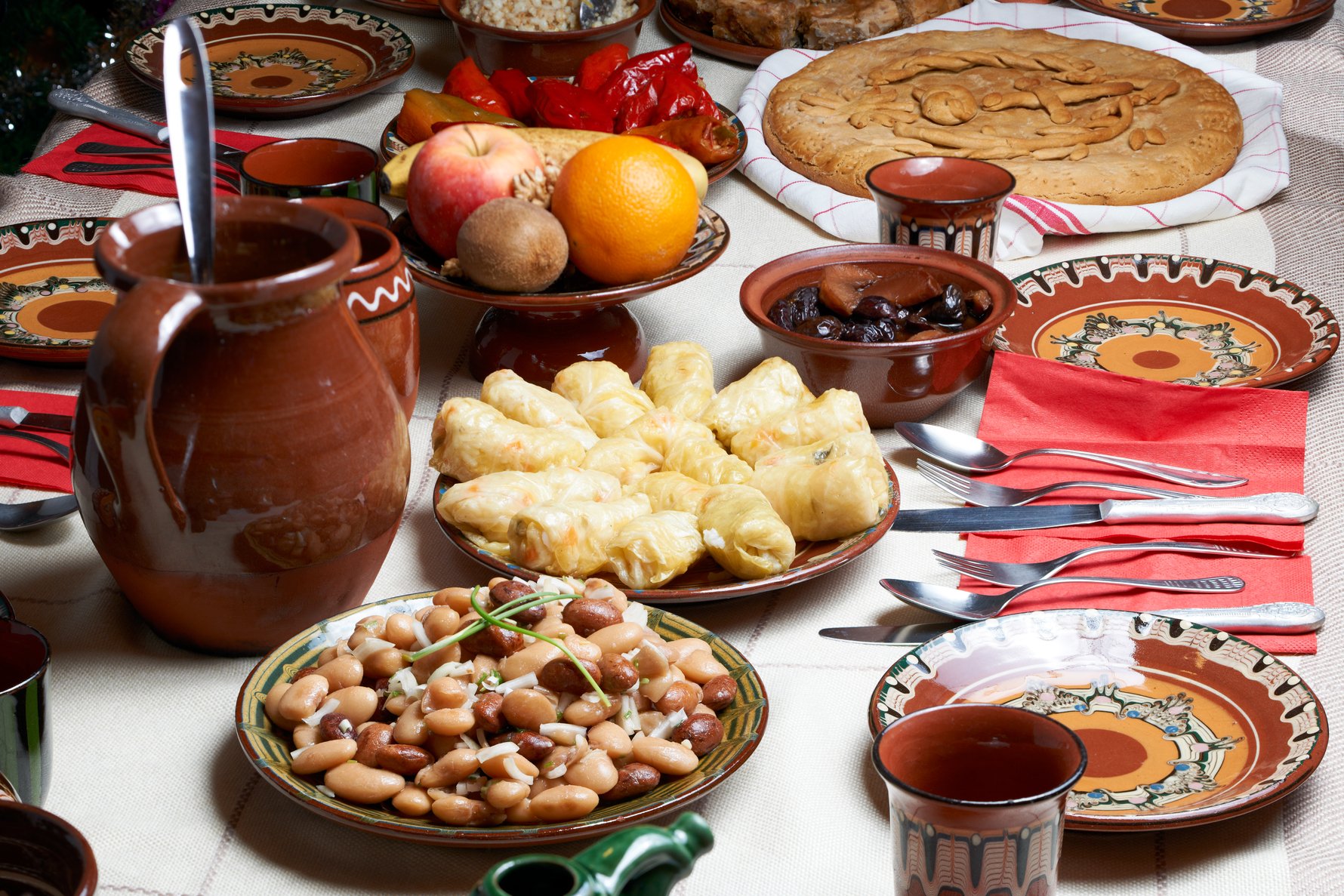The 40 day Fast
On 15th November the countdown to the Bulgarian Orthodox Christmas starts with a 40 day fast, cutting out all animal products, that culminates in the traditional Christmas Eve spread (vegan) and ends on Christmas Day. Apart from cleansing the body from a build up of toxins, the fast also aids in realigning body & soul for the main Christian holidays. The other big fast is 40 days up to Easter.During this period many Bulgarian restaurants still cater at least one dish for those observing the fast.
Budni Vecher / Christmas Eve
Traditionally the whole family gathers on Christmas Eve. In our home meanwhile we all participate in preparing the dishes that will go on the festive table.The oldest male in the household lights the fire with the Yule log, from an oak or pear tree which is kept burning the whole night. The festive table is set. There should be 7, 9 or 11 vegan / vegetarian home made dishes on the table.
These would normally include 'bob chorba' (bean soup) or a bean salad, sermi (stuffed wine leaves, cabbage rolls or peepers), turshiya (pickled vegetable salad), a fruit stew, 'banitsa' with pumpkin and of course the 'pitka' traditional bread. Before starting the meal, thyme incense is lit and carried around the house, again by the head male, through all the rooms to ward off evil spirits. He then breaks the pitka at the start of the meal, the first piece is for the departed and is placed next to an icon. The remaining pieces are then handed out in descending order of age, and one lucky person will find the silver coin that has been hidden in the bread along with other messages of good fortune. (This is definitely a great family favourite in our home)
A spoon of wheat is thrown into the fire for good health. According to tradition, no one should leave the table during the meal, all get up together. The table is not cleared (love this bit!) as it is believed that the dead return to feast and care for the fortune of the living. Girls can place a morsel from the first piece of bread under their pillow to dream of the man they are to marry.

Christmas Day
This starts at midnight with Koledouvane (carol singing). Th young male singers (bachelors or engaged men) are known as Koledari and go from house to house in the villages, dressed in traditional festive clothes, singing wishes for health and prosperity. In return they receive donations of food and drink which they share at a party afterwards.
Most Bulgarians will also go to church on this day before settling down to the traditional Christmas Day meal of turkey slow cooked with pickled cabbage (Sauerkraut).
The period form 25th December till 6th January is known as Mrusni Dni (Dirty Days) when according to folkloric belief, monsters and other evil forces are at their strongest. Gatherings and weddings do not take place during this time.
Stefanovden / St. Stefan
This popular name day on 27th December is the third day of Christmas and closes the cycle with more family gatherings, eating, drinking and singing.





Comments